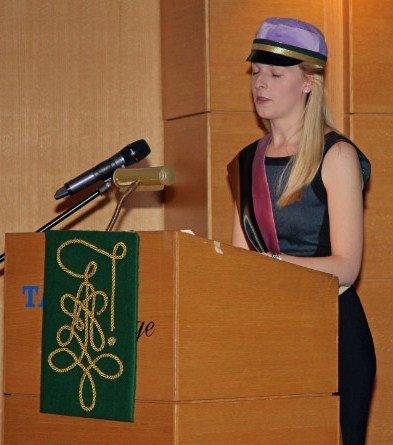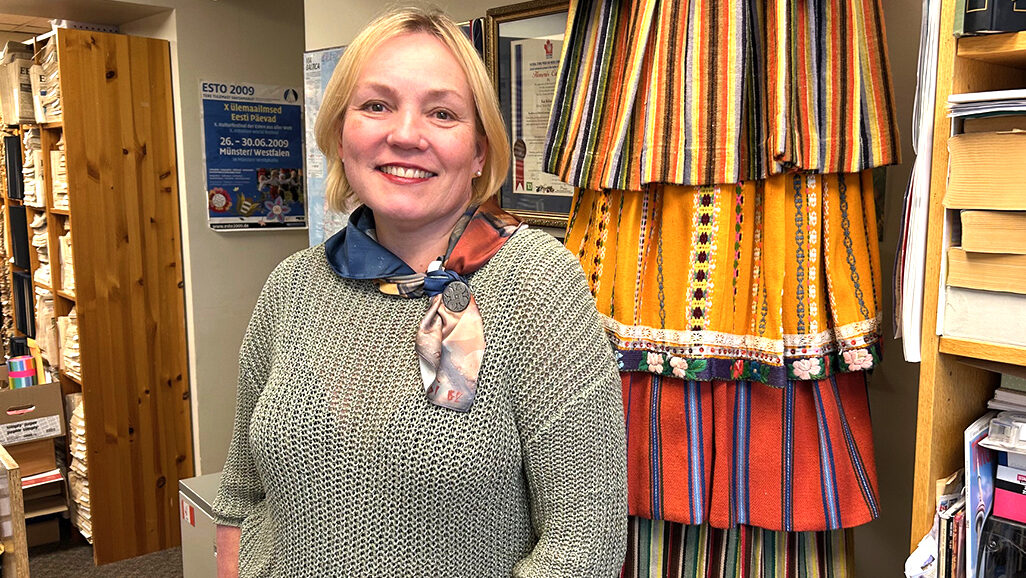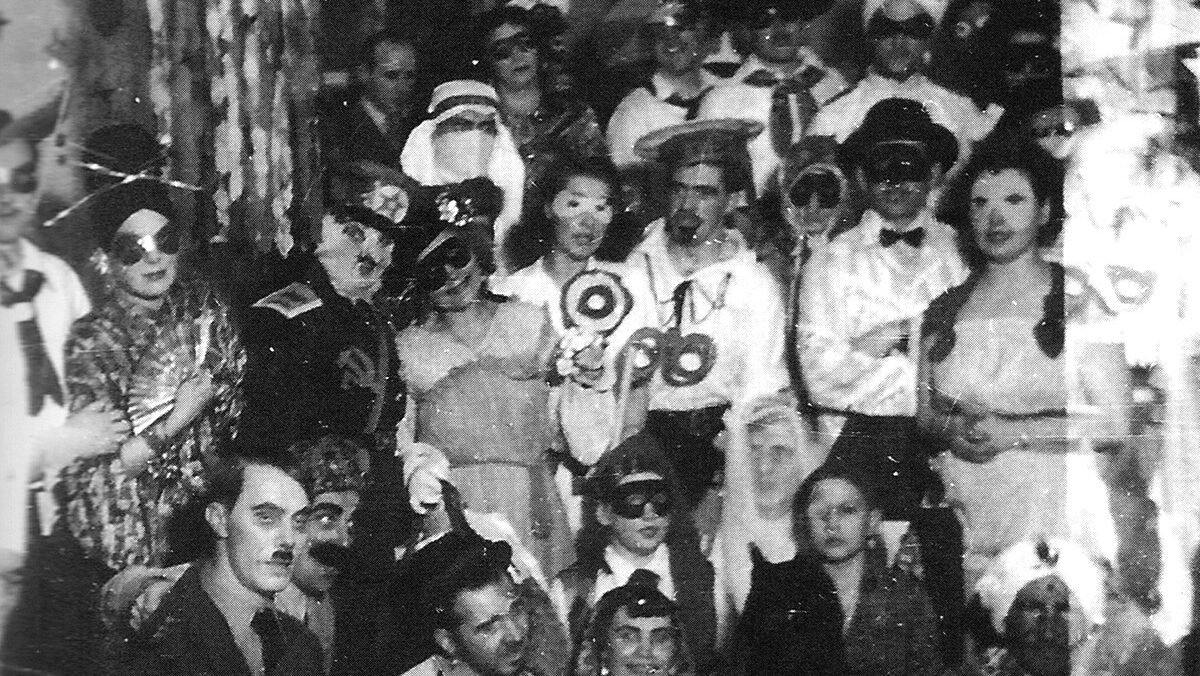My sister and I grew up in a mixed marriage home with our isa being the Estonian speaker, though everyone thinks our ema is also Estonian because of her Swedish grandmother's blonde hair and blue eyes. I guess our parents knew from early on that both Anneliis and I would not be fluent in eesti keel, but it was still important to them that we participate in activities such as Lasteaed. Fortunately for us, we grew up in a time when the Toronto Estonian community began to realize that its population demographic was evolving and we were part of many of the organizational “firsts” for children like “us”.
In 1997, we were part of the first Estonian immersion week at Jõekääru suvekodu. Even with our limited vocabulary of Lastead eesti keel, it was important to our isa that we attend the same suvekodu that he attended as a kasvandik ja kasvataja. Jõekäärul kasvas meie Eesti identsus. Ilma selleta, mina ei oleks täna siin.
Olin üksteist aastat Jõekäärul, kasvandik ja siis kasvataja ja vetelpäästja. Seal tundsin ennast eestlasena. Jõekääru was the place where I learned so much of what is means to be an Estonian – from the heritage, kunst, rahvalood, rahvatants and expanding minu sõnavara.
I was also the first graduate of Eesti kooli Esto101, an immersion program for adolescents with limited eesti keel. Although I only attended for a year before I left Toronto for university in Hamilton, this program created an environment where it was ‘okay' for older individuals to learn the Estonian basics.
Korp! Amicitia has also undertaken its own organizational ‘firsts'. As I previously mentioned, I spent minu suved Jõekäärul, my only real connection to the Estonian community. Jõekäärul kuulsin, KAOB KEEL, KAOB RAHVAS. Kas mina saaks ilma keeleta eestlane olla?
As a child, I remember attending the Vironia jõulupuud and as I got older I was invited to both Rotalia and Vironia perekonnaõhtud. Of course, I only knew people who spoke eesti keel to be part of a korporatsioon …could I join? Would I be accepted as a non-speaker?
Õnnelikult minule, korp! Amicitia ütles JAH! Amicitia is quite literally the glue that keeps me attached to the Estonian community. Without Amicitia, I would have become one of the Estonians who has ‘disappeared' from sight. Since joining Amicitia viis aastat-tagasi, I have gained so much. I can keep in touch with vanad sõbrad and have a regular connection to the Estonian community. From attending koosolekud to being a part of juubeli and küünlapäev komiteed and more recently juhatus, I have come to expand my social circle and I have met and become friends with many amazing women.
Kirikuandmed show that since the 1970s more and more marriages in our Estonian community are classified as mixed. Don't get me wrong, there is absolutely nothing wrong with this for I am the product of one such marriage, but is does introduce new challenges.
Loodan, et olen eeskujuks sellel juubeli aastal, sest kõige tähtsam on proovida ennast teha paremaks eestlaseks. Minu Eesti keel ei voola suust, aga minu eestlus elab südames ja hinges.
vil! Kristina Põldre, c 2009, korp! Amicitia esinaine, 2014-2015




